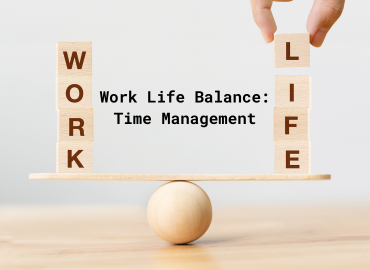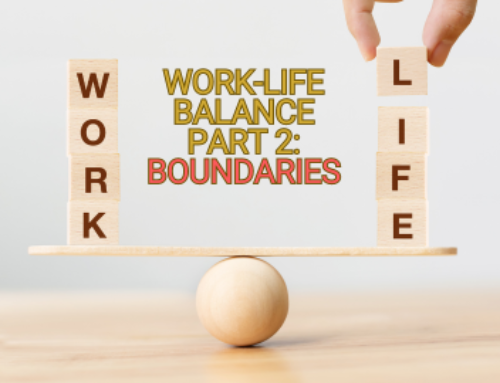Work-Life Balance: Time Management
A huge portion of a healthy work-life balance is good time management. Time management can be a hard task, and it’s an ongoing one, but the benefits of adapting time management strategies that work for you are worth the time and effort. Check out our other articles on time management here and here.
Time management and mental health are strongly linked. Anxiety and stress are common symptoms of poor time management, and each grows off the other until the sufferer experiences burnout. Smart
time management has a positive impact on everything from one’s workload to getting quality sleep.
You can’t get time back once it’s spent. Unfortunately, we don’t have the technology yet. What we can control is what we do with our time. Circumstances can be beyond our control but what we choose to do about them is within our control.
Quality time management starts with your priorities. What are the most important things to get done? Why is each one so important? Try listing the “have to” things and the “should do” things in separate columns. You can also try things to do while you’re out versus things to do at home. Priorities can be easier to stick to if they have extra detail around them. Also, is there anything you can delegate and remove from your priority list?
Adjust your priorities with extra detail. The “have to get done” things and then the “want to get done” things in different columns. Or things to do while you’re out versus while you’re home. Is this something you can delegate? Is this even something you should be doing?
To help sort out your priorities, develop a list style that works for you. A list can be so much more than a collection of items and more like a map of your day. What appeals to your mind? Try these:
− Apps designed for everything from breaking down tasks to daily reminders to long-term planning
− Audio memos
− Online calendars with booking abilities
− Physical items like planners
For tips on how to improve your memory, check out our articles on the subject here, here, here, and here.
Make sure to give yourself enough time to complete something. Don’t make yourself work at a pace that isn’t sustainable. Find out how much time you actually need by observing your work pace and saving data habits. Are you spending too much time on one aspect of the task and not another? Work breaks into the task if you need them. Take breaks to eat and hydrate, walk around, and rest your eyes.
Try using a method with a neat name. We encourage people to try out different time management rubrics that have been tested by others, like these:
− The Pomodoro Technique
− The Eisenhower Matrix
− The Pareto analysis
Something you devise yourself might be the solution. For instance, working until the next hour mark, or until the album you’re listening to while working ends. It might suit you to complete one task at a time, or it might suit you to chip away at multiple tasks alternately.
Working out your time management can be an important part of personal growth. It’s a process and it’s OK if you can’t get it all done right away. If you feel like your work-life balance is suffering, talk to us. We have multiple therapy methods to help you achieve a healthier equilibrium. Always talk to your general





